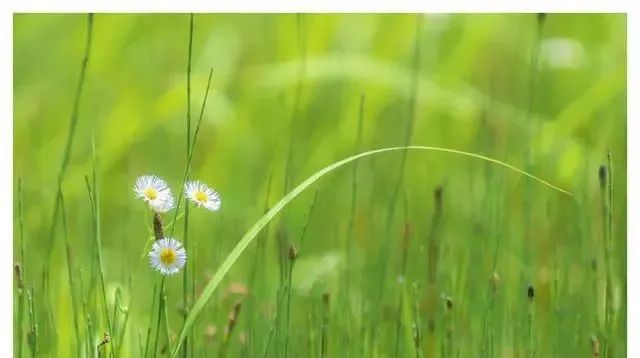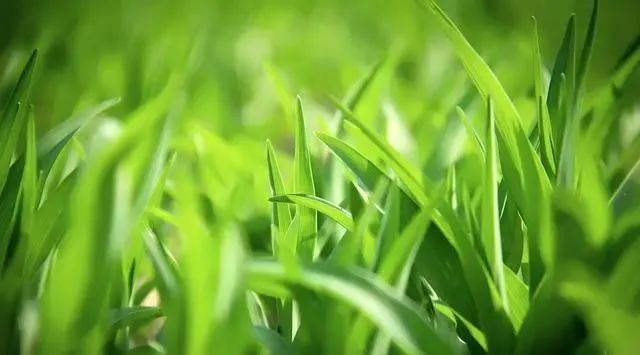Disorders of Qi include insufficient generation or excessive consumption of Qi, abnormal movement of Qi, and decline in the physiological functions of Qi. These manifest as several conditions such as Qi deficiency, Qi sinking, Qi stagnation, Qi counterflow, Qi obstruction, and Qi collapse.
Qi Deficiency
Qi deficiency refers to the pathological changes resulting from insufficient original Qi, leading to a decline in the functions of the whole body or certain organs. The main manifestations of Qi deficiency include insufficient original Qi, reduced organ function, and decreased resistance to disease. The primary causes are often congenital insufficiency, postnatal malnutrition, or dysfunction of the lungs, spleen, and kidneys. It can also result from excessive labor, prolonged illness, or aging. Qi deficiency is commonly seen in chronic diseases, elderly patients, nutritional deficiencies, recovery periods from illness, and weakened constitutions. Clinical manifestations include shortness of breath, reluctance to speak, fatigue, and a weak, soft pulse.

For Qi deficiency in the lungs, the treatment principle is to tonify lung Qi. The main formula is Si Jun Zi Tang (Four Gentlemen Decoction) combined with Yu Ping Feng San (Jade Windscreen Powder) with modifications.
For Qi deficiency in the kidneys, the treatment principle is to tonify the kidneys and benefit Qi. The main formula is Shen Qi Wan (Kidney Qi Pill) with modifications.
For Qi deficiency in the spleen, the treatment principle is to strengthen the spleen and benefit Qi. The main formula is Liang Jun Zi Tang (Six Gentlemen Decoction) with modifications.
For Qi deficiency in the heart, the treatment principle is to tonify heart Qi. The main formula is Si Jun Zi Tang (Four Gentlemen Decoction) with modifications.
For Yang (Qi) deficiency, the treatment principle is to tonify Yang and benefit Qi. The main formula is Shen Fu Tang (Ginseng and Aconite Decoction).
Qi Sinking
Qi sinking is one of the mechanisms of Qi deficiency, characterized by the inability of Qi to rise, leading to a downward descent. Qi sinking often develops from further progression of Qi deficiency. The spleen should lift and strengthen; if spleen Qi is deficient, it can lead to Qi sinking, commonly referred to as “Middle Qi sinking.” The relative stability of the internal organs relies on the normal movement of Qi. Therefore, when Qi deficiency weakens the lifting force, it can cause certain organs to sag, such as gastric prolapse, kidney prolapse, uterine prolapse, and rectal prolapse, often accompanied by symptoms like abdominal fullness, frequent urge to defecate, shortness of breath, fatigue, low voice, and weak pulse.
The treatment principle is to tonify original Qi and lift the sinking Qi. The main formula is Bu Zhong Yi Qi Tang (Tonify the Middle and Benefit Qi Decoction) with modifications.

Qi Collapse
Qi collapse refers to a pathological change where Qi deficiency reaches a critical point, leading to the risk of loss and extinction. Due to severe depletion of Qi, blood, and body fluids, the physiological functions of the organs decline drastically, and true Qi leaks out, resulting in a state of imminent collapse. Qi collapse can be classified into gradual collapse and sudden collapse: gradual collapse occurs with progressive depletion of essence Qi, leading to extreme organ failure; sudden collapse occurs with a rapid depletion of essence Qi, resulting in the loss of Yin and Yang. For example, heart Qi collapse leads to mental disorientation and a faint pulse; liver Qi collapse results in blurred vision and slight twitching of limbs; spleen Qi collapse leads to significant muscle wasting and persistent diarrhea; lung Qi collapse results in rapid breathing and loud snoring; kidney Qi collapse leads to involuntary loss of fluids and difficulty in breathing. Sudden loss of Yin Qi results in wrinkled skin and agitation; sudden loss of Yang Qi results in cold sweats and cold extremities.
The treatment principle is to tonify Qi and stabilize the collapse. The main formulas are Shen Fu Tang (Ginseng and Aconite Decoction) and Du Shen Tang (Single Ginseng Decoction) with modifications.

Qi Stagnation
Qi stagnation refers to pathological changes where Qi is obstructed in certain organs, meridians, or local areas. Qi stagnation is primarily due to emotional distress, phlegm, dampness, food accumulation, blood stasis, and external injuries, which obstruct the flow of Qi, leading to dysfunction or obstruction of certain organs and meridians, characterized by fullness, distension, and pain. Since the movement of Qi is closely related to the liver’s function of regulating and dispersing, the lung’s function of descending and dispersing, the spleen’s function of lifting and clarifying, the stomach’s function of descending and purifying, and the intestines’ function of separating and transporting, Qi stagnation is often associated with dysfunction of these organs.
When Qi flows, blood flows; when Qi stagnates, blood stasis occurs; when Qi flows, water also flows; when Qi stagnates, water retention occurs. Therefore, Qi stagnation can lead to blood stasis and water retention, resulting in pathological changes such as blood stasis, phlegm retention, and edema.
The treatment for Qi stagnation focuses on promoting Qi flow, commonly using Tong Qi San (Qi Unblocking Powder) and Wu Mo Yin Zi (Five Milled Drink) among others. Due to the complex causes and locations of Qi stagnation, clinical treatment should also consider the location, nature of the disease, and its relationship with other conditions for appropriate modifications.

Qi Counterflow
Qi counterflow refers to the pathological state where Qi moves in the opposite direction, indicating a disturbance in the normal rise and fall of Qi. Qi counterflow is primarily caused by emotional distress, inappropriate food temperature, or phlegm obstruction. It is most commonly seen in the lungs, stomach, and liver. The lungs should clear and descend; if lung Qi counterflows, it leads to cough and wheezing. The stomach should descend harmoniously; if stomach Qi counterflows, it leads to nausea, vomiting, belching, and hiccups. The liver governs rising; if liver Qi counterflows, it leads to headaches, facial flushing, and irritability. Since the liver is a solid organ that actively governs rising and stores blood, when liver Qi rises excessively, it can lead to blood following Qi counterflow, resulting in hemoptysis or hematemesis, or obstructing the clear orifices, leading to fainting.
Generally, Qi counterflow is primarily due to excess conditions, but there are also cases where deficiency leads to Qi counterflow. For example, lung deficiency can lead to failure in descending, or kidney deficiency can lead to failure in Qi retention, both resulting in lung Qi counterflow; stomach deficiency can also lead to stomach Qi counterflow.
The basic treatment principles are to regulate Qi and descend Qi. For lung Qi counterflow, use Su Zi Jiang Qi Tang (Perilla Seed Decoction to Descend Qi) with modifications; for stomach Qi counterflow, use Jiao Pi Zhu Ru Tang (Tangerine Peel and Bamboo Shavings Decoction) or Xuan Fu Dai Zhe Shi Tang (Xuanfu and Realgar Decoction) with modifications.

Qi Obstruction
Qi obstruction refers to a pathological change where the Qi of the organs and meridians is blocked and not flowing. Qi obstruction is often caused by external pathogens such as wind, cold, dampness, heat, phlegm, and turbid toxins deeply penetrating the organs or obstructing the meridians, leading to loss of normal flow in certain orifices. For example, if heart Qi is obstructed, it can lead to delirium and convulsions; if chest and lung Qi is obstructed, it can lead to chest pain and wheezing; if bladder Qi is obstructed, it can lead to urinary retention; if large intestine Qi is obstructed, it can lead to constipation; if meridian Qi is obstructed, it can lead to joint pain. Among these, heart obstruction with mental confusion is the most severe; the term “obstruction syndrome” generally refers to heart Qi obstruction.
The treatment principle is to open the obstruction and clear the orifices. The main formulas include Tong Guan San (Open the Pass Powder), Chu Bi San (Nasal Expelling Powder), Su He Xiang Wan (Agastache Pill), Wu Ling San (Five-Ingredient Powder with Poria), Da Cheng Qi Tang (Major Order the Qi Decoction), Da Xian Xiong Tang (Major Chest-Drain Decoction), Shen Xian Jie Yu Tang (Divine Immortal’s Language-Resolving Decoction), and Ling Jiao Gou Teng Tang (Antelope Horn and Uncaria Decoction).
Guess you might like to read
Daily abdominal rumbling and diarrhea indicate spleen deficiency; a two-step approach can help regulate it.
The true culprit of insomnia has been found; spleen deficiency is one factor, and one herb can strengthen the spleen, aid sleep, and warm kidney Yang.
One formula with four herbs can relieve spleen and stomach Yang deficiency, with definite effects.
The most boring mini-game, the more you play, the more addictive it becomes, and you can’t stop!

